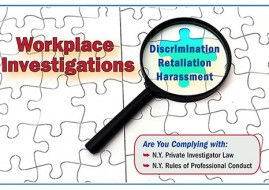When Lawyer Should Comply with Client Instructions
By Lazar Emanuel [Originally published in NYPRR May 1999]
N.Y. State Bar Op. 713 (1999)
Question: A lawyer has drafted a deed for his client who is taking title to parcels of real estate in satisfaction of a preexisting debt. The client has instructed the lawyer not to obtain title searches of the parcels. The lawyer’s professional judgment is that it would be contrary to the client’s interest to forego the searches. Should the lawyer comply with the client’s instructions?
Answer: Yes.
Digest: The lawyer should follow the client’s instructions. “The lawyer’s duty is to exert his best efforts to insure that decisions of the client are made after the client has been informed of relevant considerations.” [EC 7-8.] The lawyer may limit the scope of his representation of the client to drafting the deed “as long as the lawyer is able to otherwise represent the client and the client fully understands the consequences of the limitation.” [NY State 604 (1989).]
The lawyer may continue to represent the client even after the client has ignored his advice, “so long as he does not thereby knowingly assist the client to engage in illegal conduct or to take a frivolous legal position.” [EC 7-5.]
If the client ignores his advice, the lawyer is bound to follow the client’s instructions unless he withdraws from the representation as permitted by DR 2-110(C)(1)(e). That provision “permits (but does not require) a lawyer to withdraw from representing a client when the client insists in a matter not pending before a tribunal that the lawyer engage in conduct which is contrary to the judgment and advice of the lawyer but not prohibited under the Disciplinary Rules.” (Citing Roy Simon, New York Code of Professional Responsibility Annotated, 141 (1998 ed.)
Lazar Emanuel is the Publisher of NYPRR.
DISCLAIMER: This article provides general coverage of its subject area and is presented to the reader for informational purposes only with the understanding that the laws governing legal ethics and professional responsibility are always changing. The information in this article is not a substitute for legal advice and may not be suitable in a particular situation. Consult your attorney for legal advice. New York Legal Ethics Reporter provides this article with the understanding that neither New York Legal Ethics Reporter LLC, nor Frankfurt Kurnit Klein & Selz, nor Hofstra University, nor their representatives, nor any of the authors are engaged herein in rendering legal advice. New York Legal Ethics Reporter LLC, Frankfurt Kurnit Klein & Selz, Hofstra University, their representatives, and the authors shall not be liable for any damages resulting from any error, inaccuracy, or omission.
Related Posts
« Estate Planning Lawyer May Not Sell Long-Term Care Insurance Code Violations & Disqualification Motions: Which Rules Apply? »











